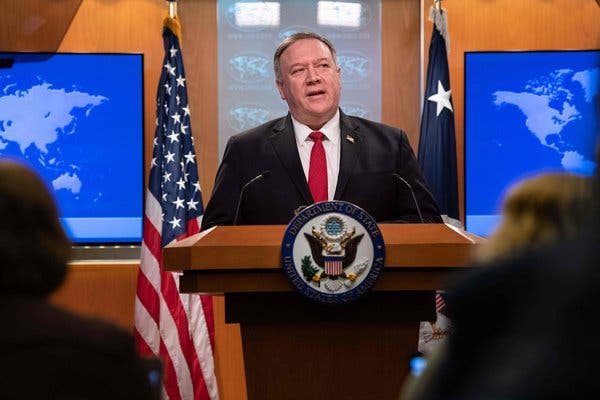SPRINGFIELD — Democrat Gov. J.B. Pritzker’s first year in office has been marked by key legislative victories overshadowed lately by the sweeping federal probe of alleged state government corruption.
Just two months after Pritzker signed the expansive capital infrastructure plan — the first one passed by the General Assembly in a decade — the Statehouse office of one of the bill’s lead architects was raided by the FBI.
Sen. Martin Sandoval, a Chicago Democrat who was chair of the Senate Transportation Committee at the time, eventually submitted his resignation from the chamber effective Jan. 1.
News quickly followed of raids on a former lobbyist for ComEd, an electric utility company with close ties to Illinois House Speaker Michael Madigan, D-Chicago. Later it was revealed that federal agents also executed search warrants in several small towns in the southwest suburbs of Chicago, apparently searching for information about red light camera contracts.
Wins and losses, praise and criticism, for Pritzker and Democrats in year one
Neither Sandoval nor any ComEd representatives have been charged with wrongdoing despite the ongoing investigations.
In October, however, Rep. Luis Arroyo, a Chicago Democrat, was arrested on charges that he tried to bribe an unidentified state senator who was later revealed by federal affidavits to be wearing a wire for investigators.
Before any of that, state Sen. Tom Cullerton, a distant cousin of the Senate president, was indicted in August on charges he collected a salary as well as health and pension benefits from a labor union “for which he did little or no work.” He remains in the Senate.
The constant flow of headlines pertaining to alleged corruption put ethics reforms at the top of the agenda for the fall veto session, which produced measures tightening disclosure laws for lobbyists and creating a commission to study potential changes to ethics laws.
+2

Amid chemical industry lobbying, Trump EPA reconsiders risk of cancer-causing ethylene oxide
Facing tougher restrictions, companies that manufacture and use ethylene oxide are pushing the Trump administration to undercut federal scientists and adopt a dramatically weaker standard for the cancer-causing gas.
Sen. Don Harmon, a Democrat from Oak Park, said it will be “incumbent upon” lawmakers in 2020 to “demonstrate our responsibility to voters.” He said the General Assembly should overhaul statements of economic interest and institute “an even greater separation” between legislative responsibility and fundraising obligations.”
“I hope (the federal investigations) reminds us all of the importance of the public trust we hold and that we can only lead by example, even in the face of these outliers,” he added.
Senate Majority Leader Kimberly Lightford, D-Maywood, said she did not believe the ethics probe slowed down lawmakers’ progress, as those under investigation do not represent the “full body” of the Legislature.
“I think it just showed that we’re even more committed to making sure that the personal failures of a few members does not get in the way of the work we’re doing and how we’re hoping to address problems to improve our state,” she said.
Illinois Gaming Board orders gambling owner to fire 2 employees whose ties ‘pose a threat to the integrity of video gaming’
Rep. Greg Harris, a Chicago Democrat, who was named to the ethics commission by Madigan, said it will draw upon best practices in other states, bills filed by both parties in the General Assembly, think tanks and others to craft effective ethics policies. The commission is scheduled to report its findings in March, and he said it would discuss pushing out reforms before that deadline.
“I don’t want this to be a kicking-the-can-down-the-road exercise,” he said. “I don’t want it to be a grandstanding exercise. I want people to come in there and do real work. I think everyone in the state agrees that we have some real problems with some of this lobbyist stuff and the ethics, governmental ethics stuff, and transparency and accountability, and we need to step up and fix them.”
Senate Minority Leader Bill Brady, R-Bloomington, who criticized what he said is a partisan tilt to the commission, said he will “continue to be hopeful” that it does its job.
“But at the end of the day, what really needs to happen is all these investigations, all these concerns about members of the General Assembly wearing wires, needs to come to rest,” he said. “And the federal government needs to give us some conclusion on the illegal activities which are already illegal regardless of ethics reform.”
Christopher Mooney, a professor of state politics at the University of Illinois-Chicago, was less optimistic, saying the platitudes put before a task force don’t always translate into effective legislation, because the general public is more interested in headlines proclaiming “ethics reform” than they are of minute details of the reforms.
“People that are affected by the ethics reforms, they’re much more into details. … The general public’s not that interested. Obviously, they just want people to knock it off,” he said. “But the people that are involved, the lobbyists and whatever and the legislators that these restrictions are imposed upon, they would like to make them as loose as possible.”
Senate leadership change
The surprise retirement announcement of the state’s top senator earlier this year joins the federal investigations in creating uncertainty for the 2020 political agenda.
Senate President John Cullerton, D-Chicago, told reporters at the end of this year’s fall veto session that his reason for leaving was to spend more time with family. Democratic Senate caucus members are scheduled to choose his successor on Sunday, Jan. 19, and several have been jockeying for position in recent weeks.
Mooney said the dynamic in the Senate will be an interesting one to watch in 2020.
“When you’re running for leader, you hand out goodies,” he said. “…That’s how you get it. You give out favors. But once you’re in, you owe people stuff.”
Cullerton said becoming a leader is a “humbling” experience.
“It’s very humbling, because you’re asking your peers to elevate you and you’re reminded of your shortcomings by your colleagues. They’re folks who don’t say, ‘I’ll vote for you,’ right away. You have to win them over. You’re constantly being reminded of your shortcomings. … That’s where the humility comes in,” he said.
Cullerton said he plans to not vote on his successor and has chosen not to endorse a candidate.
While the change to the Senate will be the first in majority leadership since Cullerton assumed the office of president in 2009, House Speaker Madigan will remain in the position he has held for all but two years since 1983.
Through a spokesperson, Madigan declined to be interviewed for this article but distributed a statement to Capitol News Illinois.
“This upcoming legislative session will largely focus on passing a responsible, balanced budget. While we accomplished quite a bit last session, there’s plenty of work that remains to be done. I look forward to working with the legislative leaders and the governor on another productive session that puts working families first,” the speaker said in that statement.
The next session
The governor reiterated his commitment to passing ethics reforms and laid out some of his other 2020 agenda items at a news conference in Chicago earlier this month.
He said a top priority will be addressing the state’s $137 billion pension debt, though he did not go into specifics. He also said he was focused on expanding early childhood education in the state, further reforming the criminal justice system and “expanding opportunities for working families to get ahead.”
“I’ve talked a lot about lowering the cost of health care, lowering the cost of child care, lowering the cost of education so that we can raise the standards of living for people who are working in our state in addition to creating jobs for competition for labor so that we’re lifting up their wages while we’re lowering their day-to-day costs,” he said.
Some observers said the federal probes into ComEd’s lobbying practices and their connections to Madigan’s office have hampered another of Pritzker’s campaign promises — addressing climate change by putting Illinois on a path to 100 percent carbon-free energy use.
“It’s on life support right now,” House Minority Leader Jim Durkin, a Western Springs Republican, said of energy reforms. “And until we get a full understanding of what is going to happen with the investigations that are currently related to ComEd, and also members of the Legislature, I don’t see any desire for the Legislature to take up that particular piece of legislation”
But Harris said the Clean Energy Jobs Act will be on the top of the agenda for House Democrats, despite the ComEd investigation having “some effect” on its prospects.
“But you know, there are a lot of different players involved in the whole energy discussion,” he said. “You have the different solar providers, you have wind providers you have downstate fossil fuel providers who are trying to get things. You have Exelon, which is a nuclear generator which has some specific asks. So, yeah, there’s a lot of moving pieces, but from what I hear from people who are involved in those negotiations, … they seem to be moving along.”
Pritzker, in Decatur, calls for more DCFS caseworkers, resources to prevent child abuse
The governor also said he would renew a legislative push to make a Chicago casino more feasible, as the $45 billion capital plan depends, in part, on revenues from such a facility.
Harris said much of the focus in 2020 will also be on making sure some of the newly created programs in 2019 can be successfully implemented.
Durkin said House Republicans plan to focus heavily next year on two issues: ethics reform and overhauling the way the General Assembly redraws legislative and congressional districts each year — a proposal they refer to as “fair maps”
Durkin said the mapmaking issue should be brought to voters in the form of a constitutional amendment ballot question.
“That is whether or not they should take the legislative map-drawing for the Legislature and Congress out of the hands of the Democrat power brokers in Springfield and leave it to an independent commission. … That is the one way in which you can clean and get rid of the culture of Springfield,” he said.
Brady, the Senate Republican Leader, echoed that sentiment, pointing to a Pritzker campaign promise to veto partisan legislative maps.
“I could only take Gov. Pritzker at his word that he will not sign a gerrymandered, unfair map,” he said. “I think he knows the best way to get there is to remove the opportunity that two people have, the president of Senate and the speaker the House, to draw the map.”
He also said he is looking forward to hearing recommendations from a property tax reform task force that was established last year so the General Assembly can get to work on the issue.
While it is still unclear who will lead the Senate in 2020, Majority Leader Lightford, who is running among her caucus for the office of president, said a focus will be “working on business development and business growth, and attracting more jobs” to Illinois, as well as retaining high school graduates.

